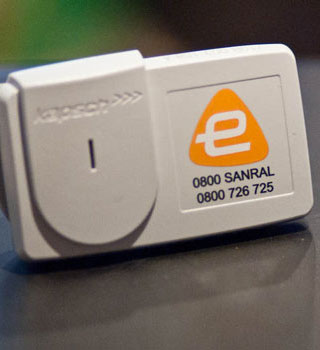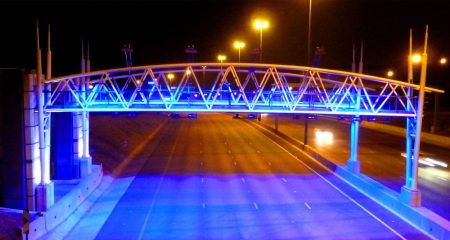 Decisions taken on the Gauteng Freeway Improvement Project (GFIP) will have implications for how future infrastructure projects are financed, minister Collins Chabane said on Friday.
Decisions taken on the Gauteng Freeway Improvement Project (GFIP) will have implications for how future infrastructure projects are financed, minister Collins Chabane said on Friday.
It was necessary to guard against decisions and actions that might impact negatively “on our track record in the prudent management of government finances”, he told reporters after cabinet’s regular fortnightly meeting.
Chabane is minister of performance monitoring and evaluation. He said the government had to act responsibly and ensure it and state-owned enterprises honoured their financial obligations timeously.
“Government must also ensure that nothing compromises the huge infrastructure programme which is crucial for raising the level of SA’s economic growth, and for raising the standard of living of citizens, especially the poor and unemployed.”
Chabane said the government understood the concerns and issues raised by South Africans regarding e-tolling. This was why it had gone some way to provide relief to motorists by making R5,75bn available to Sanral.
Cabinet had appointed a special committee to be chaired by deputy president Kgalema Motlanthe to coordinate all work around the project. Committee members included the ministers of transport, finance, public enterprises, Chabane himself, and the director-general in the presidency.
The committee would, among other things, move rapidly to ensure Sanral’s financial stability was not affected in any way.
“The committee will assess government’s response to the North Gauteng [Pretoria] high court ruling and other related matters.”
It would also meet appropriate stakeholders to find constructive solutions and consensus on the outstanding matters.
“Government would also like to reiterate that the R20bn investment in the [freeway improvement project], which started in 2007, will benefit the residents and the economy of Gauteng, which is the major driver of national economic activity,” Chabane said.
Meanwhile, Cosatu on Friday welcomed cabinet’s decision to appoint a special committee for Gauteng freeways, but maintained that e-tolling was not acceptable.
“We are confident that it will find a more equitable and efficient model than e-tolling, which has become so discredited, unpopular and impractical,” the the trade union federation said.
Cosatu said in a statement it expected the committee would work closely with the ANC and Cosatu’s joint task team. This team had already started researching alternative models for funding road construction and improvements.
Cosatu said it agreed with Chabane that decisions taken regarding the project would impact on future infrastructure funding. “Cosatu fully agrees that the government must act responsibly, and ensure it and state-owned enterprises honour their financial obligations timeously.” — Sapa




